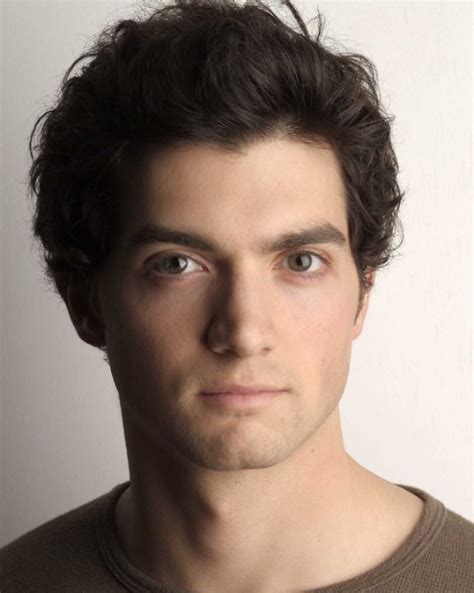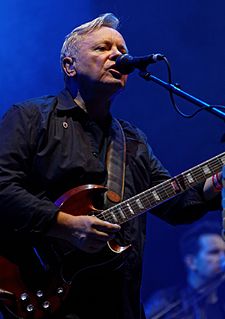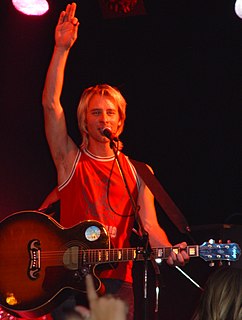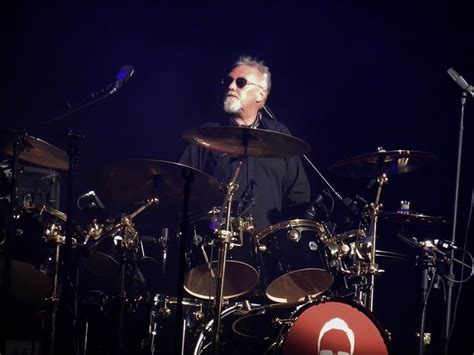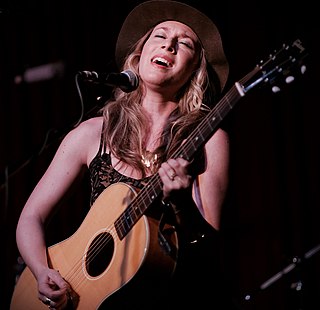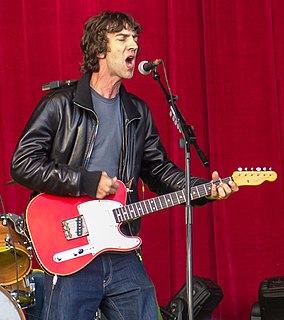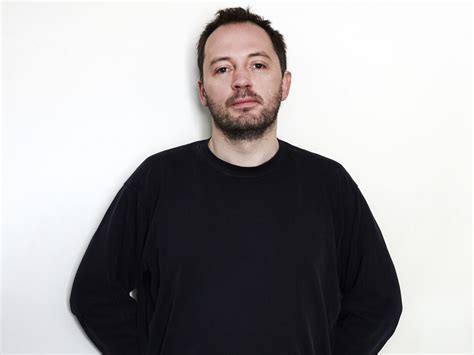A Quote by David Alpay
I know the lead singer of System of a Down, and I record violin tracks with him.
Related Quotes
If you're a lead singer, then you can't afford to be sensitive. On stage, everyone looks at the lead singer, even if you don't want them to - in America, they have those massive follow spots on you all the time; it does your head in. So, if you are a lead singer and you don't toughen up, you're in the wrong job, and you have to get out.
My dad used to do a lot of music when he was young, so he had an 8-track MiniDisc recorder, and when he realized that I was getting on with it, he brought it upstairs to my room and showed me how to record and how, once you finished eight tracks, you can cut it down to two and have another six tracks to play with.
The reason for backing tracks is to not veer off too far from the record and have what the fans actually want to hear. Artists use backing tracks just so they can stay close to the record and what the consumer heard for the first time. It's not to be confused with lip synching or anything like that cos that's not happening at all.
I started playing violin because I was fascinated by how violin players could play so fast. I would buy their cassettes, and learn different concertos, but then I started rounding out my collection. My dad was a big jazz fan, so I just started hearing a lot more soul music. I loved Little Stevie Wonder, and I got really into him as a singer and a writer as I got older.
I know that people don't listen to music much in the way when they'll put on a CD, sit down, have a drink or go on a car journey. People pick and choose and just listen to tracks. But when I make a record, I try to think about it as a 50 minute musical journey, so the mood is very important, as is the sequence of the songs.
